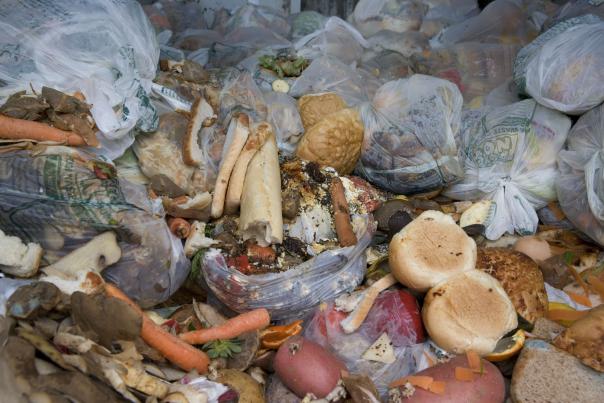
The report has found that as much as half of all food produced around the world never reaches a human stomach due to issues as varied as inadequate infrastructure and storage facilities through to overly strict sell-by dates, buy-one-get-one free offers and consumers demanding cosmetically perfect food.
With UN predictions that there could be about an extra three billion people to feed by the end of the century and an increasing pressure on the resources needed to produce food, including land, water and energy, the Institution is calling for urgent action to tackle this waste.
The report ‘Global Food Waste Not Want Not' found that:
• Between 30% and 50% or 1.2-2 billion tonnes of food produced around the world each year never reaches a human stomach;
•As much as 30% of UK vegetable crops are not harvested due to them failing to meet exacting standards based on their physical appearance, while up to half of the food that’s bought in Europe and the USA is thrown away by the consumer;
• About 550 billion m3 of water is wasted globally in growing crops that never reach the consumer;
• It takes 20-50 times the amount of water to produce 1 kilogram of meat than 1 kilogram of vegetables;
• The demand for water in food production could reach 10–13 trillion m3 a year by 2050. This is 2.5 to 3.5 times greater than the total human use of fresh water today and could lead to more dangerous water shortages around the world;
• There is the potential to provide 60-100% more food by eliminating losses and waste while at the same time freeing up land, energy and water resources.
Dr Tim Fox, Head of Energy and Environment at the Institution of Mechanical Engineers said: “The amount of food wasted and lost around the world is staggering.
“This is food that could be used to feed the world’s growing population – as well as those in hunger today. It is also an unnecessary waste of the land, water and energy resources that were used in the production, processing and distribution of this food.
“The reasons for this situation range from poor engineering and agricultural practices, inadequate transport and storage infrastructure through to supermarkets demanding cosmetically perfect foodstuffs and encouraging consumers to overbuy through buy-one-get-one free offers.”
Mark Linehan, managing director of the SRA, said that the findings by the Institution of Mechanical Engineers came as no surprise but further highlighted the cultural shift required to overcome a serious global problem.
He said: “Consumers often equate value with quantity rather than quality. This results in many restaurants serving unnecessarily large portions and, as with supermarkets BOGOF offers, superfluous side dishes that go uneaten. Restaurants need to look at serving smaller portion sizes and need to encourage diners to take home leftovers.
“We would echo the comments of the Institution that the impacts of this problem are social, environmental and economic and in order to reverse the trend there needs to be a change of culture and an increase in training. Consumers, and indeed some restaurateurs, must understand that the days of food being available where and when you want it and in whatever quantity are over. Food is a valuable commodity that we cannot afford to waste.
“Chefs need to embrace basic housekeeping skills which were second nature to the wartime generation. With rising food prices, the economic imperative will help change behaviour if the environmental argument does not.”